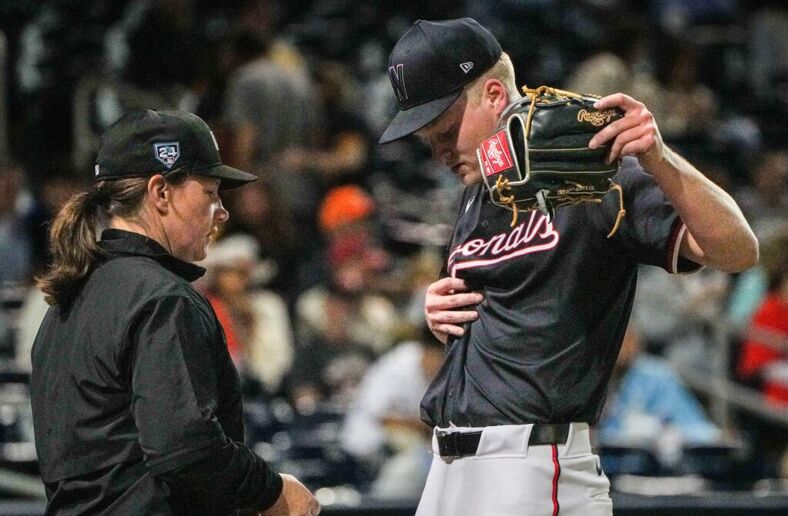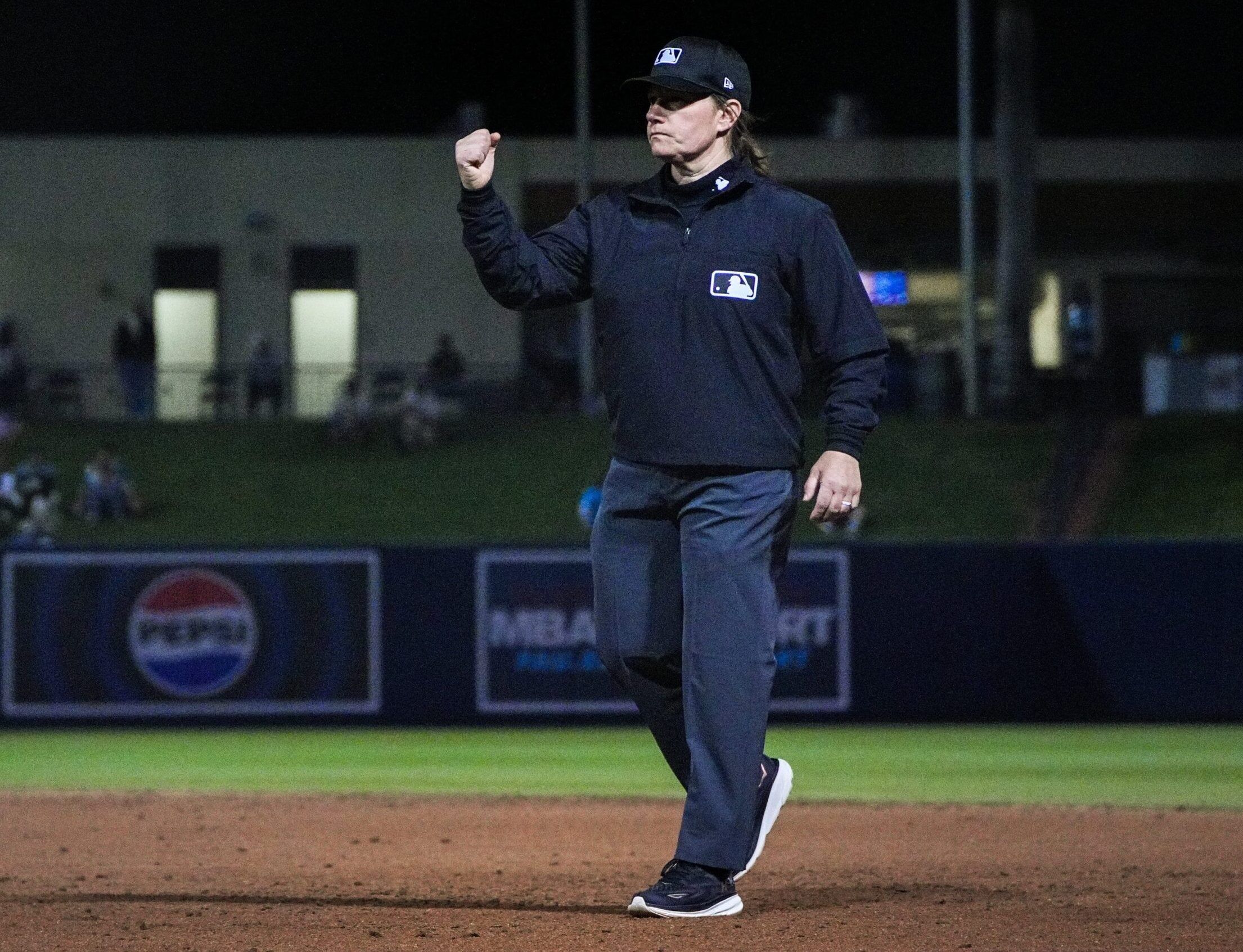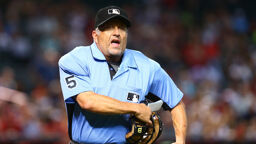As baseball continues to ramp-up for the regular season, a trailblazer is putting in the work with the hope of making history.
Since the start of spring training, Jen Pawol has been umpiring Grapefruit League games in Florida, becoming the first woman to do so in MLB since 2007. She will start the 2024 season in AAA and hopes to eventually become the first woman to call a regular season MLB game.
Retired umpire Dale Scott is familiar with the experience of doing the job as a barrier breaker after becoming the first active umpire to come out publicly as gay following the 2014 season. Based on the welcome he received during that time, he believes that baseball’s culture has progressed to the point where Pawol can expect to be accepted as well.
“You don’t have a lot of the old crusty ‘lifers’ anymore. You’ve got an analytical young generation of managers…[and] this just isn’t that big of a deal to them, I don’t think,” Scott told Outsports. “Kind of like in my situation: ‘Oh, he’s gay? Great. Does he get pitches right? Does he get plays right?’ That’s really what it all comes down to.”
Get off the sidelines and into the game
Our weekly newsletter is packed with everything from locker room chatter to pressing LGBTQ sports issues.
Over his three decades in MLB, Scott saw a drastic change take place as a 1980s-era generation steeped in “old school” machismo was replaced by one that pushed back against the grip that those values had on the game.
That opened the door for the baseball people who backed him up when he came out publicly and thanks to that sea change, he discovered that he had powerful allies in MLB headquarters.
Scott remembered a game that took place after he came out during which an on field fight erupted and he later discovered that the pitcher called the opposing batter an anti-gay slur. When he reported that incident to then-Director of Umpire Administration Matt McKendry, he mentioned that if he had heard the pitcher utter that word in the moment, he’d have ejected him immediately.
McKendry emphatically supported Scott’s declaration and told him that in any instance involving that slur— including if a player dropped it on him — MLB’s position was “Dale, we have your back.”
Because of that unequivocal support from the top, Scott proclaimed, “I didn’t have a fear of [hate speech]. I pitied the player or manager or coach who called me the f-word.”
That’s the kind of backing Pawol will need from the game’s power-brokers in order to do her job to the best of her abilities. Based on his experience, Scott is confident that similar support will be there for her.
He also noted that sports fans have grown accustomed to seeing female officials in NFL and NBA games. This will likely help Pawol find a more accepting atmosphere in the stands as well.
While working as the first out gay male umpire was a different experience than becoming the first female umpire, Scott understood that being a barrier-breaker in either case meant that there would be extraordinary demands from being placed in the spotlight.
To that end, he asserted that one of the most important parts of Pawol’s first year in the major leagues will be balancing the need to accommodate the media while learning when to say no.
“Every city she goes to — especially that first time — there’ll be the local press and they want to talk. And I think it would be wise to say, ‘The first night in town on a three-game series, I’ll talk before the game. But that’s it.’ Until the novelty kind of wears off. Try to take control of your schedule a little bit and not let everybody else control it for you,” he said.

Early on in his career, Scott had the opportunity to work with Pam Postema, a female umpire from the minors who was invited to spring training in 1988 and hoped to be the one to break the gender barrier in the majors.
He recalled her as a skillful arbiter with the backing of soon-to-be commissioner A. Bartlett Giamatti. But he also had a sense that not everybody with the league office was on board and that some umpires weren’t ready to accept a female colleague.
Plus there was that whole “baseball culture in the 80s” thing.
Related


MLB umpire Dale Scott comes out as gay in quietest way possible
A photo with his husband in a small magazine was his first public acknowledgment. "I am extremely grateful that Major League Baseball has always judged me on my work and nothing else," he says.
By Jim Buzinski | December 2, 2014
To get a sense of what Postema was up against, Scott told a story from when she was working a minor league game in El Paso. Postema walked onto the field for the pregame exchange of lineup cards only to discover that the manager had covered home plate with a frying pan.
In that era, the only thing more dated than baseball’s sexism was its jokes.
Despite running up against managers who would have been written out of “Mad Men” for being too over the top, Postema persevered and made it all the way to AAA before her career stalled out after Giamatti died in 1989.
Fortunately for Pawol, she’s umpiring in a much different game and a more inclusive culture. Once the season starts, Pawol will be on MLB’s call-up list which means she could get a major league opportunity to fill in for umpires who go on leave for vacation or with an injury.
If she gets that call and makes history, she’ll have allies among her colleagues and in MLB offices as well as a workplace where she can expect to be treated with a greater sense of fairness and evaluated solely on her umpiring skills.
As it happened during Scott’s experience as a trailblazer, that will make all the difference.











































